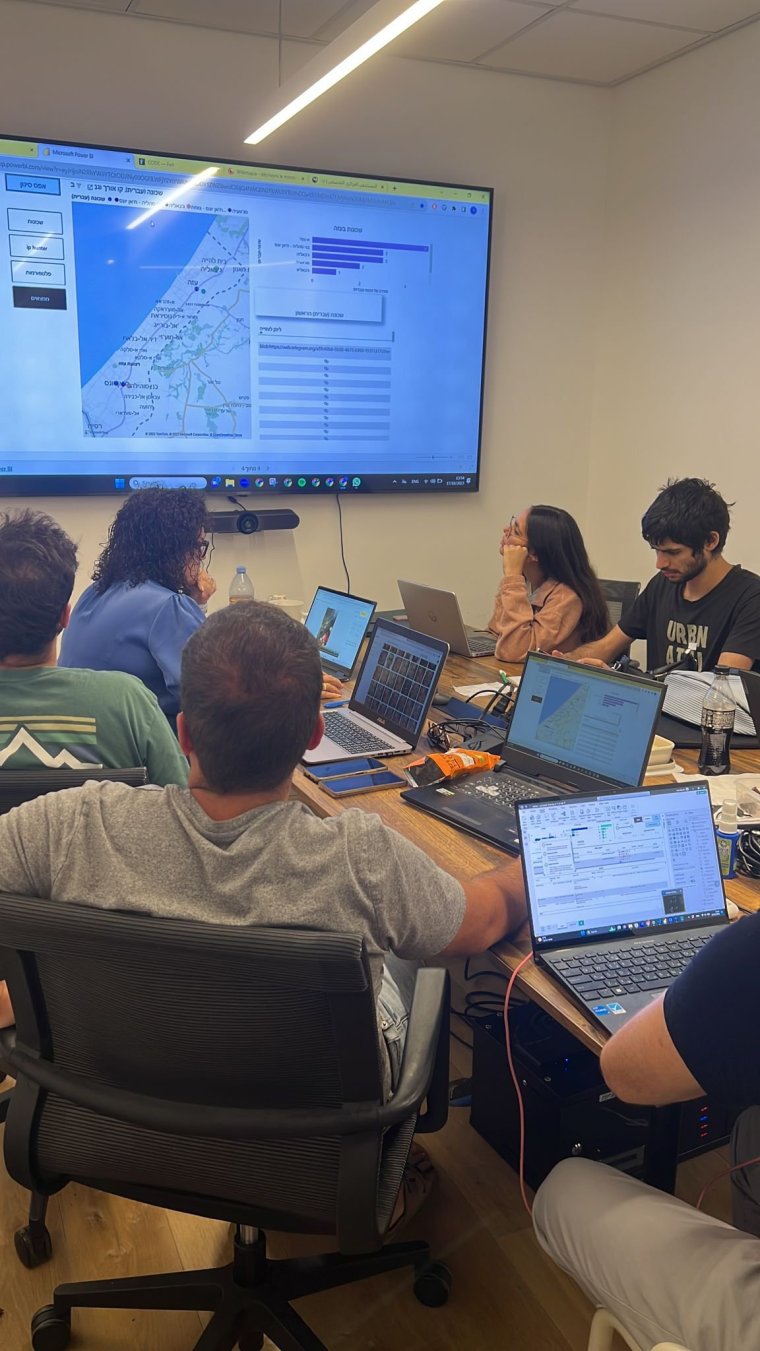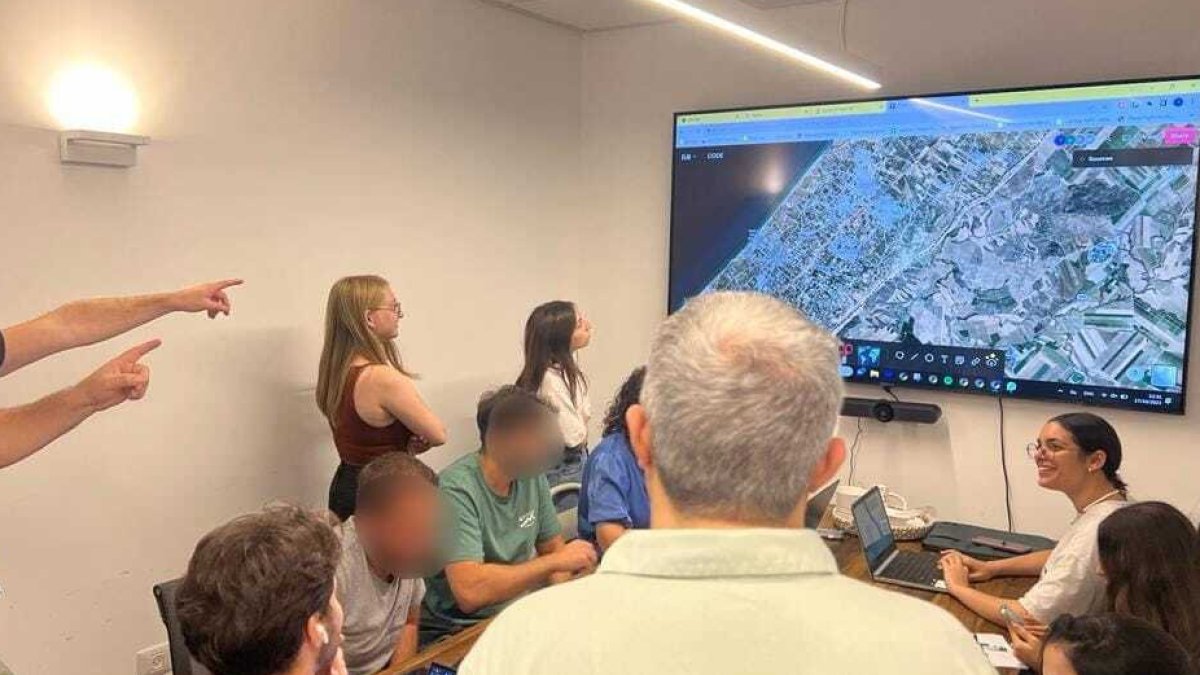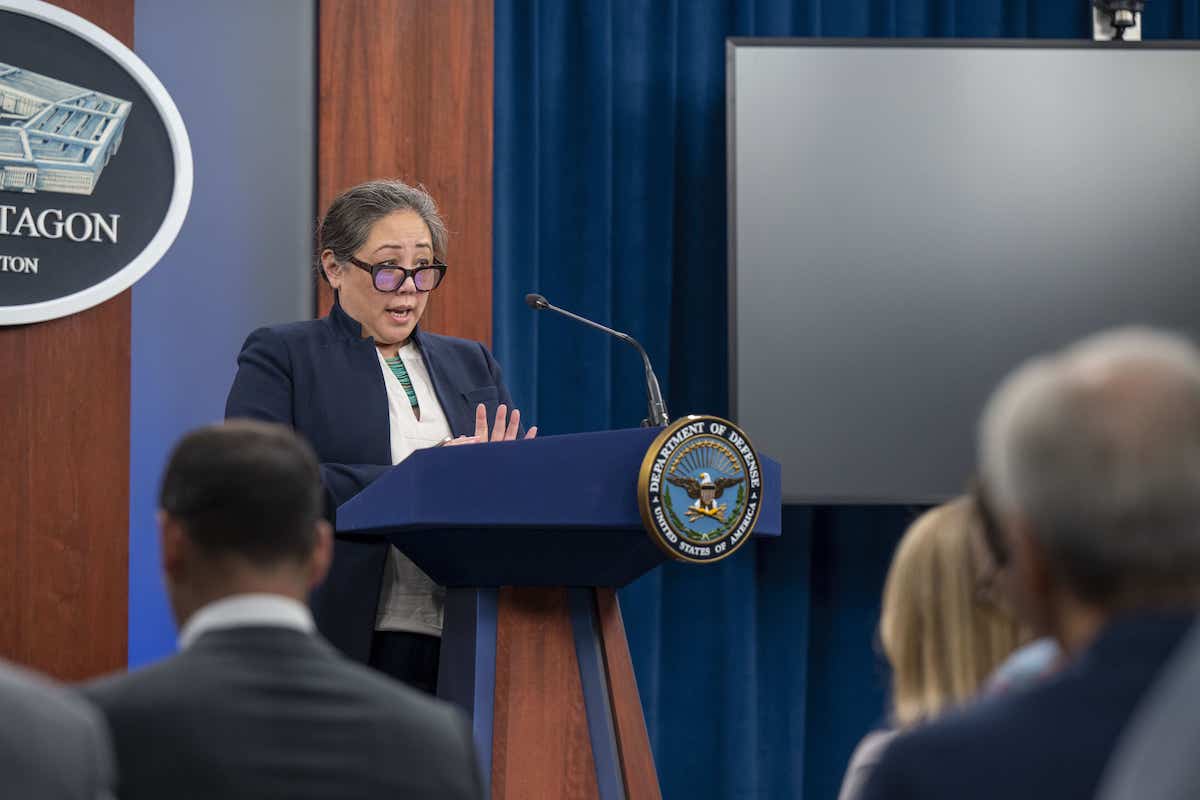Inside the cyber ‘war room’ where Israeli AI experts work to locate Hamas hostages
“I have not slept for almost two weeks now, but every time I start falling asleep I have pictures of the hostages on my desk that get me up and running again,” says Omri Marcus, who is heading one half of the Gitam BBDO “war room” in Tel Aviv.
This time two weeks ago, Gitam BBDO was not a “war room” at all. It was a leading creative agency based in the Israeli capital.
The day after Hamas launched its attack on the country, it restyled itself into what it calls a war room, made up of volunteers who have abandoned their day jobs to turn their efforts towards trying to rescue the 203 hostages the militant group captured and are holding across the border in Gaza.
The Gazan enclave is under Israeli siege with food, fuel and water access blocked off. The territory, often likened to an “open air prison” has been under Israeli bombardment since Hamas, the militant group which govern it, launched the attack on Israel in which the hostages were taken and civilians deliberately targeted to be killed.
The war room in Tel Aviv has two floors – one utilises the talents of creatives to build support for the hostages around the world, while the other is more practical. It uses face recognition tools and Artificial Intelligence (AI) to verify whether hostages are dead or alive, and pinpoint their last recorded location within Gaza.

Refael Franco took i through the process of tracking the hostages. The group collects data on social media usage within Gaza, with graphs showing the number of texts sent and app usage on the tracked phones – even down to the number of times particular emojis were sent.
Data collected from social media usage and photos and videos from the Gaza strip are then uploaded to a software called tag box, which links it to hostages using images of them provided by their families and the military.
Any matches detected are shared with the IDF’s newest unit – the task force for finding missing and displaced people.
Franco, who founded Code Blue, a crisis management company based in Israel and Germany and is the former head of Israel’s National Cyber Directorate, showed i how one hostage had been detected from a TikTok uploaded from Gaza…



